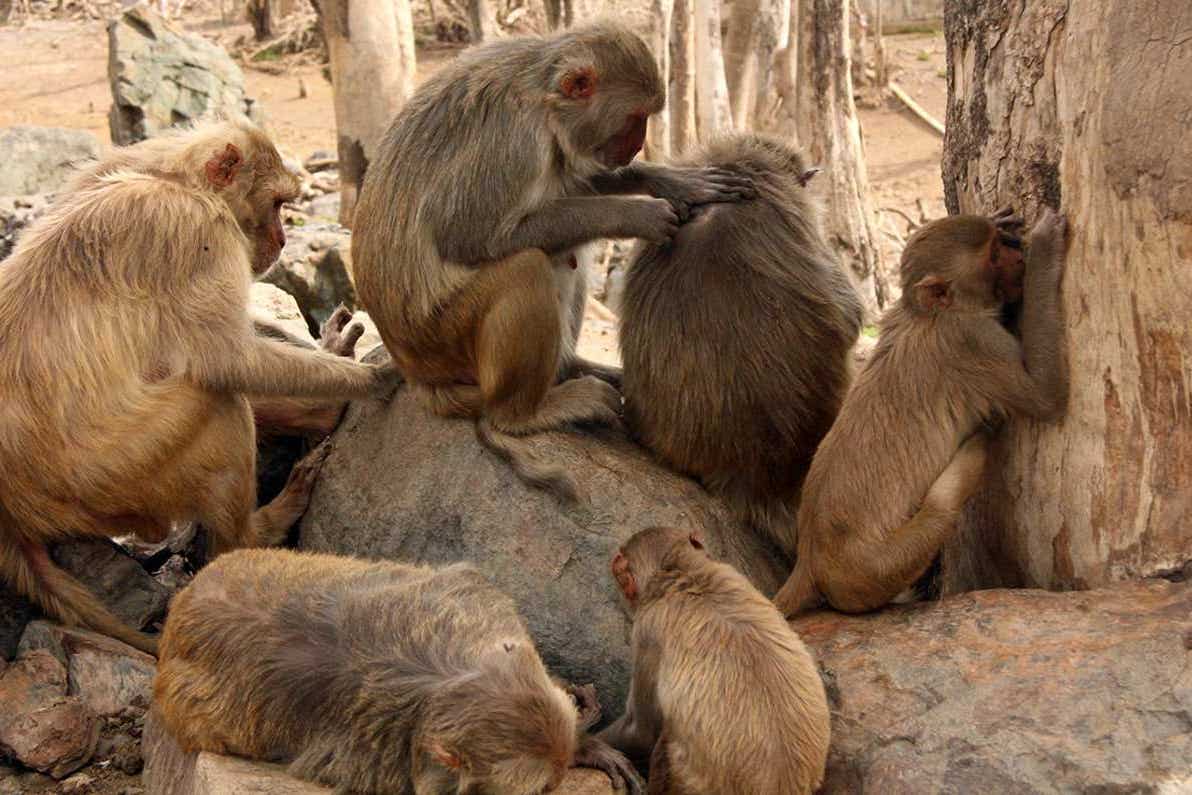Friendly monkeys have ‘higher levels of helpful bacteria in their guts’
The scientists followed 38 macaques on the island of Cayo Santiago, off Puerto Rico.

Friendly monkeys have higher levels of helpful bacteria and lower levels of potentially disease-causing microbes in their guts, research suggests.
Scientists from the University of Oxford have found that monkeys engaging in friendly social interactions with peers are more likely to have an abundance of gut bacteria known to benefit the immune system.
They said the findings, published in the journal Frontiers in Microbiology (special collection on Animal Social Behaviour and Gut Microbiome), suggest microbes play a key role in the social lives of animals, including humans.
Lead author Dr Katerina Johnson from the University of Oxford said: “There is a well-known association between the quantity and quality of social relationships and health, which is mediated in part by the immune system.
“It is interesting that our findings reflect this at the level of the gut microbiome.
“Since the gut microbiome regulates the immune response, our microbes may play a role in this link between our social lives and health.”
The scientists followed 38 macaques on the island of Cayo Santiago, off Puerto Rico.
It is particularly striking that we find a strong positive relationship between the abundance of the gut microbe Faecalibacterium and how sociable the animals are
They looked at the behaviour of the monkeys and their social networks, with each monkey assessed according to how many different individuals they interacted with and how long they spent interacting.
The team also analysed the individual gut bacteria of the monkeys.
Dr Karli Watson, from the University of Colorado Boulder, who is one of the study authors, said: “Macaques are highly social animals and grooming is their main way of making and maintaining relationships and so provides a good indicator of social interactions.”
The team found that the abundance of Faecalibacterium – which is one of the most abundant bacteria in the colon of healthy human adults – was associated with monkeys being more sociable.
Meanwhile, the less sociable monkeys were found to have a higher abundance of Streptococcus bacteria, a group that also includes harmful microbes.
Dr Johnson said: “It is particularly striking that we find a strong positive relationship between the abundance of the gut microbe Faecalibacterium and how sociable the animals are.
“In contrast to many members of the microbiota which remain rather enigmatic, Faecalibacterium is well known for its potent anti-inflammatory properties and is associated with good health.”
The experts also say there is another possibility: monkeys with fewer friends may be more stressed, which, in turn, affects the abundance of beneficial microbes in their guts.
Dr Johnson said: “Compared to other lifestyle factors such as diet and exercise, we have limited understanding of the mechanisms via which sociality is related to our risk of illness and mortality, and the microbiome adds a new dimension to this relationship.”